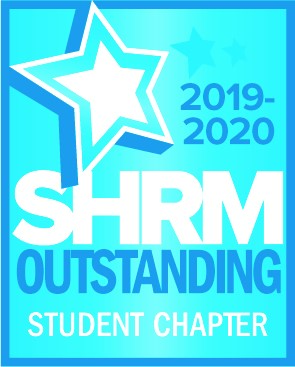
Master of Business Administration
Master of Business Administration

Talk with us.
Learn more about how our program works
and what you need to get started
Choose the Online MBA Program Built for the Future of Business
Excelsior University’s Master of Business Administration program is designed to help grow your career with interactive coursework that strengthens the high-level collaborative abilities and integrated strategic mindset that employers from startups to multinational corporations are looking for in an MBA graduate. Learn with fellow students from across disciplines to expand your network and your worldview. Gain practical knowledge you can use today as you develop your leadership, analytical, and strategic instincts.
Deepen your area of expertise and build new skills with concentrations in Cannabis Control, Data Analytics, Distributed Workforce Management, Finance and Accounting, Health Care Management, Homeland Security and Emergency Management, Human Resource Management, Leadership, Marketing, Nutrition, Organizational Leadership, Public Health Equity, and Strategic Sustainability. You can also create your own personalized course of study by choosing the General Business concentration.
Make sure to read the full requirements for this program before you apply
Excelsior’s MBA program is accredited by the International Accreditation Council for Business Education (IACBE).
Dedicated Support
Here for you from start to finish
200,000+ Alumni
Join our global network
Start January 5
Courses start every 8 weeks
PROGRAM DETAILS
Online MBA
- Major Core21 Credits
- Concentration9 Credits
Master of Business Administration
Understand the impacts of cannabis legalization in our communities, states, and nation. The curriculum fosters strong critical thinking skills crucial to keeping pace with the fast-changing environment, and innovative courses meld industry and practitioner-based readings with scientific research.
Enhance your analytical abilities and acquire the skills to uncover new insights that improve business strategy. Learn how to collect, analyze, and visually represent rich sets of data designed to improve organizational decision-making.
Think strategically and lead decisively across all functions in organizations. Learn to create value for the organizations and communities you serve by solving the complex challenges that arise managing within a distributed work environment.
Learn the necessary principles and tools to be a successful manager in finance, business, management and accounting firms, corporations, government, and nonprofit organizations. Deepen your understanding of financial analysis, corporate disclosure, and nonprofit accounting.
Designed with flexibility in mind, the General Business concentration helps you develop a personalized specialization that spans multiple disciplines and is tailored to your specific career goals.
Focus on strategic management principles and communication tactics essential for health care leaders. Develop new ways to navigate the complex health care environment, enhance organizational performance, and improve patient outcomes.
Expand your knowledge of the threats posed by domestic and international terrorism, as well as strategies for countering them. Evaluate and develop emergency and disaster plans that can be employed in the face of both human-made and natural threats.
Gain the practical skills today’s human resource managers need. Use contemporary theories and empirical research to guide key functions in human resource management, including staffing, employee relations, conflict resolution, and compensation and benefits.
Enhance your ability to manage and inspire high-performing teams in dynamic business environments with practical aspects of leadership, such as direct team management, crisis handling, and change implementation.
Traverse private and public sector industries in the application of business-to-business and business-to-consumer marketing methods. Learn to apply advanced constructs in digital marketing with a focus on brand development, launch, and management.
Promote access to healthy foods in marginalized communities and find new strategies to educate individuals, families, and populations about healthful nutrition and the relationships between food and wellness.
Become a transformational public health leader and agent of change for communities, particularly those who have historically faced significant health disparities. Study interdisciplinary themes as a best practice for cultivating enduring change in population health outcomes.
Implement sustainable practices within organizations using the science behind sustainability and strategic leadership for sustainable development, preparing you to drive initiatives that promote environmental responsibility.
Hone your leadership skills at an organizational level and learn to combine strategy, communication, and innovation management to tackle the challenges impacting organizations today.
Explore Common Careers

Amanda Alfred
Master of Business Administration, 2017
Institutional Accreditation
Excelsior University is an accredited institution and a member of the Middle States Commission on Higher Education (MSCHE or the Commission) www.msche.org. Excelsior University’s accreditation status is accreditation reaffirmed. The Commission’s most recent action on the institution’s accreditation status on June 23, 2022 was to reaffirm accreditation. MSCHE is recognized by the U.S. Secretary of Education to conduct accreditation and pre-accreditation (candidate status) activities for institutions of higher education including distance, correspondence education, and direct assessment programs offered at those institutions. The Commission’s geographic area of accrediting activities is throughout the United States.
All of Excelsior University’s academic programs are registered (i.e., approved) by the New York State Education Department.
Society for Human Resource Management (SHRM) Student Chapter
SHRM has acknowledged that Excelsior University’s concentration in Human Resource Management fully aligns with its HR Curriculum Guidebook and Template. The concentration has achieved alignment renewal through 2025.
IACBE Accreditation
The School of Business, College of Liberal Arts and Sciences at Excelsior University received specialized accreditation for its business programs through the International Accreditation Council for Business Education (IACBE), located at 11960 Quivira Road in Overland Park, Kansas, USA. For a list of accredited programs please view our IACBE member status page.
Review the IACBE Public Disclosure of Student Achievement.FAQ
GMAT scores are not required to apply to Excelsior University’s MBA program, but you’ll need to submit an official transcript confirming your completion of a bachelor’s degree at a regionally accredited college or university, or the foreign equivalent. Bachelor’s degrees from nonregionally accredited institutions will be accepted if the school was accredited by an accrediting body listed in the U.S. Department of Education’s Database of Accredited Postsecondary Institutions and Programs at the time you attended. Review Excelsior’s graduate admissions requirements.
You can complete up to three of the following MBA program concentrations:
An MBA provides a versatile foundation for a wide range of careers both within and outside of traditional business fields. MBA holders can find professional opportunities in project management, organizational psychology, marketing, health care, and consulting, among others.
An MBA helps you develop a strong foundation in business principles, enhances strategic thinking, and can lead to valuable networking opportunities that can equip entrepreneurs and business owners with the skills and knowledge to navigate the complexities of running a business and increase their chances of success.
Yes, Excelsior University’s MBA program is 100% online and designed with the flexibility that working adults need.


